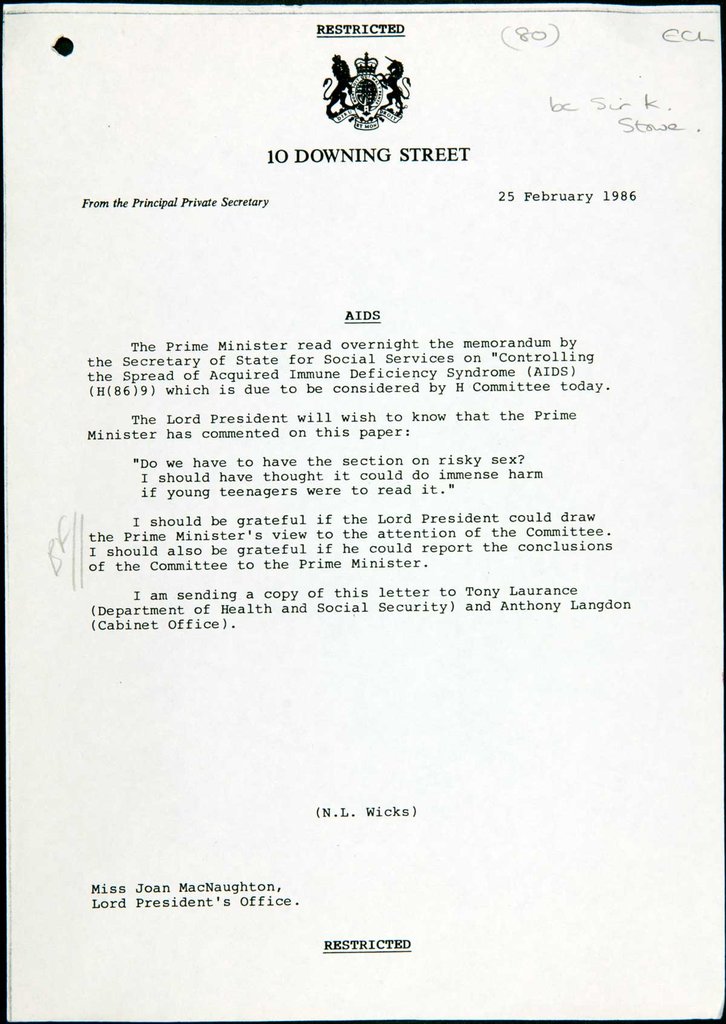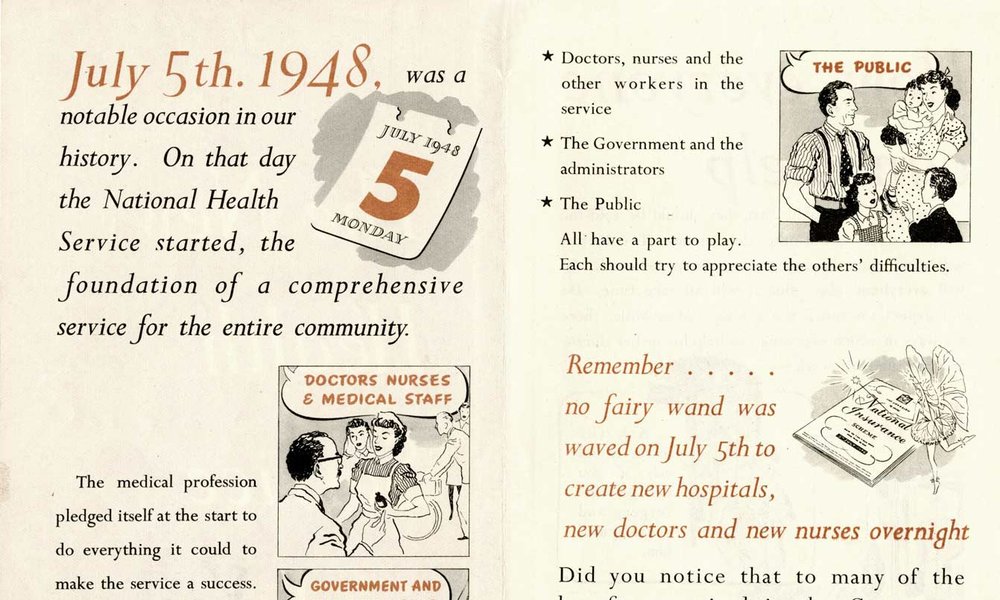Public health campaigns
Local and national governments have issued health advice since the medieval period, often during epidemics. But in the 20th century the government embarked on massive publicity campaigns on all aspects of health, now preserved in our records.
Tuberculosis awareness poster
Date: 1935–1939
Catalogue reference: View the record N/A in the catalogue
Tuberculosis was a key public health concern in the early twentieth century.
This awareness poster was published by the Central Council for Health Education, prior to the formation of the National Health Service. The Council was supported by the Ministry of Health and provided expert personnel, advice and material to assist Local Authorities in England and Wales to educate people in health matters.
This education campaign aimed to ‘spread knowledge and get rid of unnecessary fears’ about tuberculosis, encouraging people to reach out to medical professionals for early diagnosis.
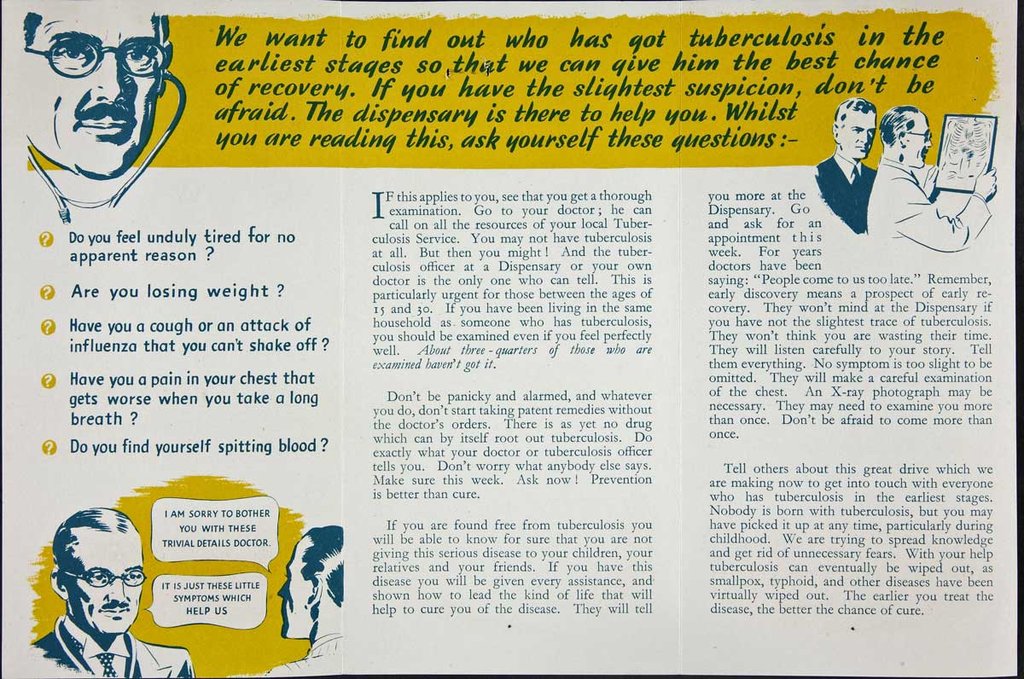
Still from a film explaining the National Health Service
Date: 1948
Catalogue reference: View the record N/A in the catalogue
This animation, ‘Your Very Good Health’, was released by the Central Office of Information to promote the new National Health Service (NHS).
Everyman ‘Charley’ is sceptical about the NHS – he has insurance and worries about more taxes. But he is gradually convinced that the NHS’ range of services, and protection from ruinous bills, is right for him and his family.
In 1944, Winston Churchill’s wartime government had promised ‘A National Health Service’. Clement Atlee’s post-war government set out to deliver it, but faced opposition from doctors, insurers and sceptical citizens.
Films like ‘Your Very Good Health’ were part of what Minister of Health Aneurin Bevan called ‘explanatory work’ – propaganda convincing the nation to support and use the NHS.
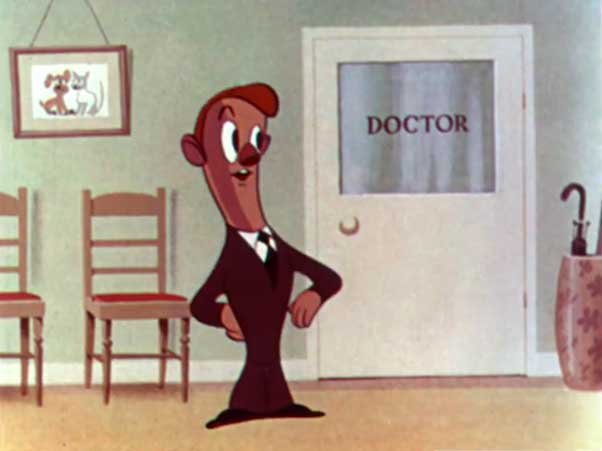
Photograph of a midwife helping a mother bath her baby
Date: 1948–1957
Catalogue reference: View the record N/A in the catalogue
After the National Health Service (NHS) was established in 1948, the government produced a significant amount of propaganda to publicise the various services available to the public.
This photograph, produced by the Ministry of Health, shows a midwife offering a mother support about how to bath her new-born baby. Under the new NHS system, maternity care was now free for all women and their babies.
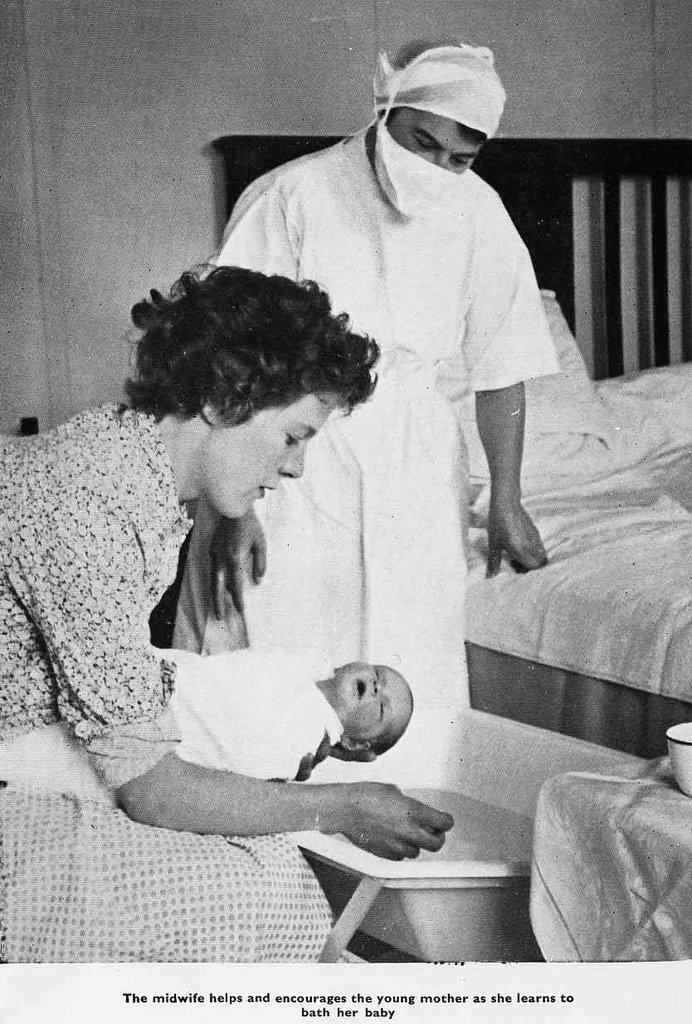
Ministry of Health poster encouraging blood donation
Date: 1949
Catalogue reference: View the record N/A in the catalogue
Though blood donations and blood transfusions are now commonplace, they were relatively rare before the Second World War. This period of warfare hastened the need for blood donation, with blood donation centres set up across Britain.
By 1946 the Ministry of Health set up the National Blood Transfusion Service, which consisted of regional blood centres. This public health campaign followed in 1949, and urged members of the public to sign up to be blood donors to ‘save a life’.
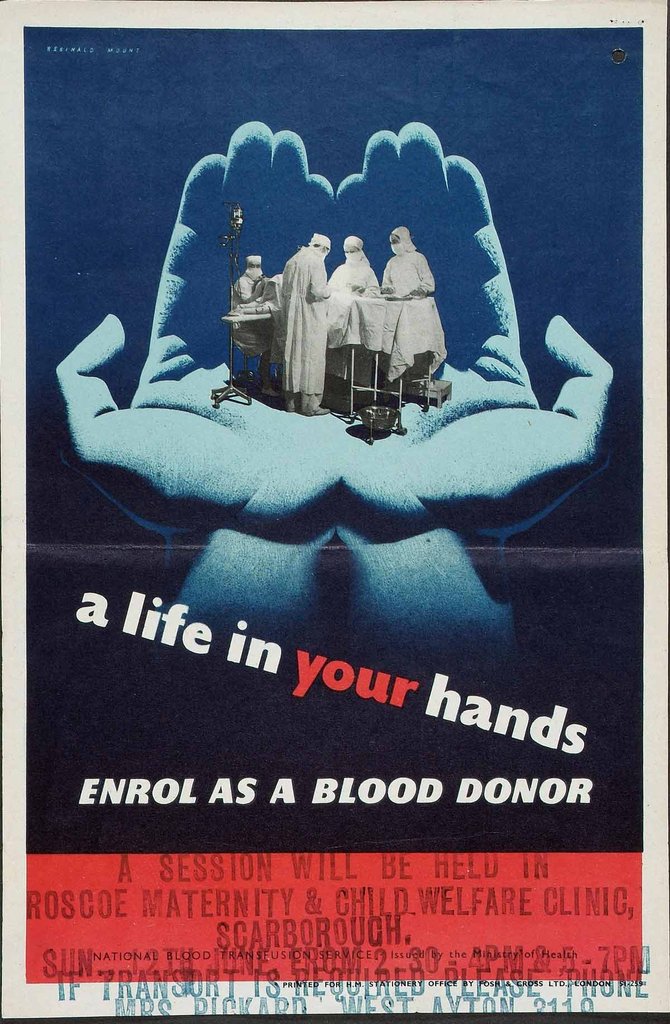
Poster encouraging people to keep their bin lid on
Date: 1962
Catalogue reference: View the record N/A in the catalogue
In the 1960s the government ran a series of food hygiene awareness campaigns, creating striking posters to spread their message. These campaigns focused on how to prevent food poisoning through covering cuts, preserving food properly and washing hands thoroughly.
This particular poster focused on keeping lids on dustbins to limit the spread of germs by flies. The design studio of Eileen Evans and Reginald Mount is the named artist for several of these posters, but the others are generally unattributed, including this one, ‘For health's sake’.
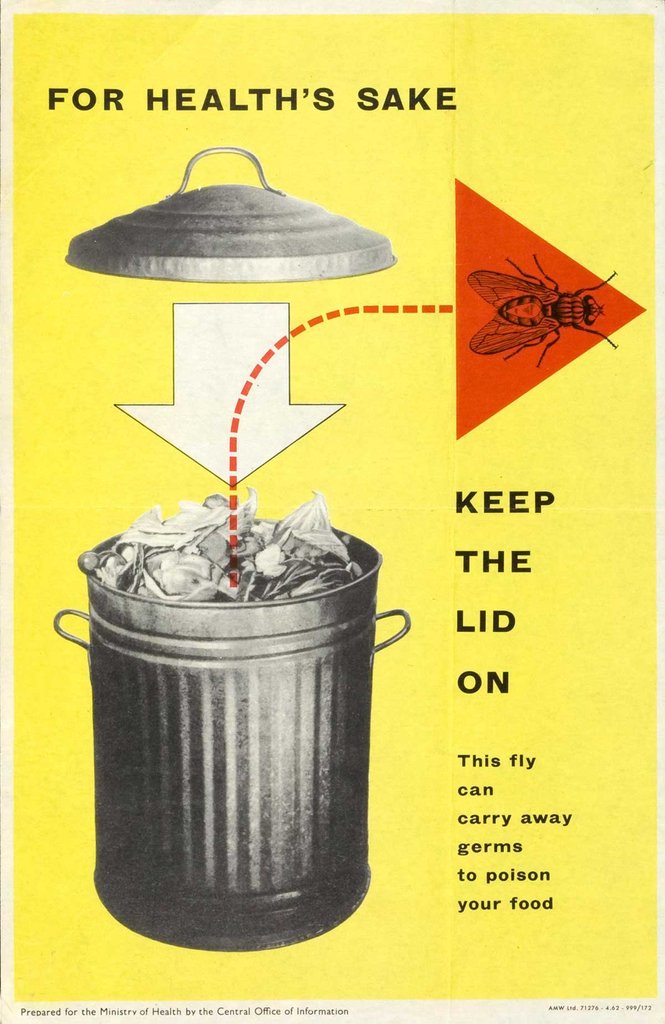
Poster promoting the money saved by giving up smoking
Date: 1966
Catalogue reference: View the record N/A in the catalogue
Sixty years ago, smoking was a popular recreational activity. While it was enjoyed by many, awareness of its significant health risks were spreading. At this time smoking was possible in many public spaces, such as workplaces, pubs, clubs and on public transport.
In 1962 the Royal College of Physicians published a report on ‘Smoking and Health’, recommending limits on tobacco advertising. This forced the government into action. It launched a public health campaign, and one of the angles was the potential financial savings that could be gained from not smoking.
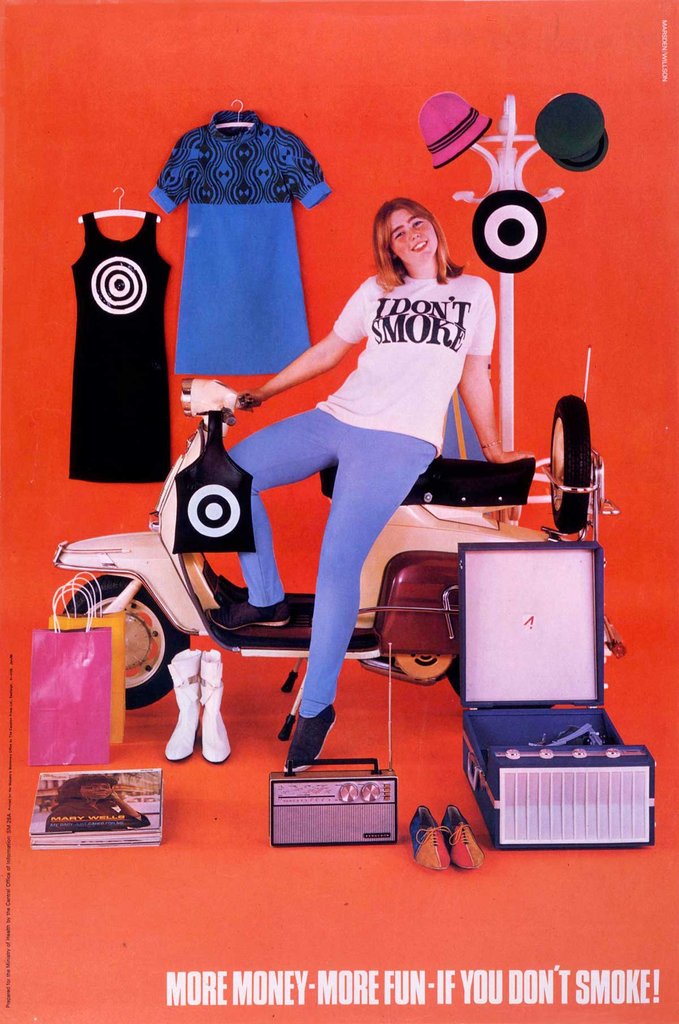
Letter on the public education campaign to prevent the spread of AIDS
Date: 1986
Catalogue reference: View the record N/A in the catalogue
In this letter, Prime Minister Margaret Thatcher’s Principal Private Secretary shared Thatcher's comments on a paper by the Secretary of State for Health and Social Services. The paper explained the need for a campaign of public education to prevent the spread of AIDS (Acquired Immune Deficiency Syndrome). It included the text of an advertisement to be placed in the Sunday papers.
The Prime Minister voiced concerns about explaining sexual practices which could lead to HIV infection, which included (unprotected) anal sex: ‘Do we have to have the section on risky sex? I should have thought it could do immense harm if young teenagers were to read it’. However, the Committee considered the message was vital and it stayed, the final phrasing referring to ‘rectal sex’.
